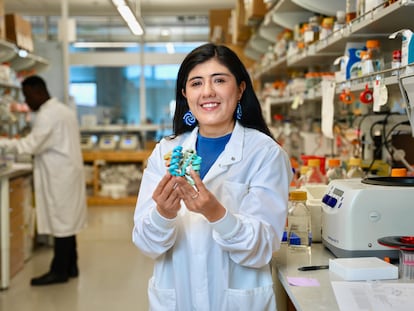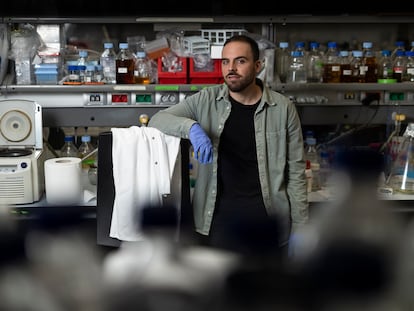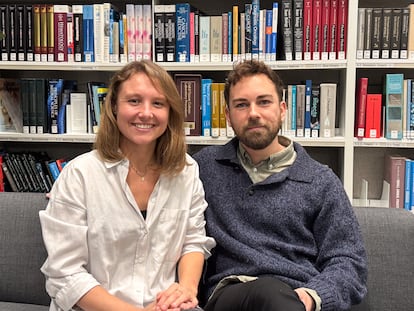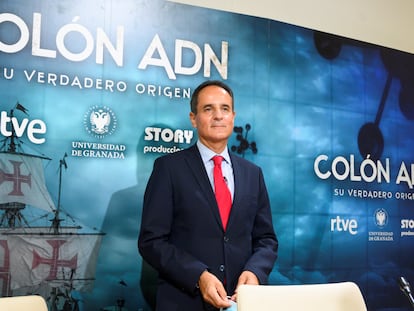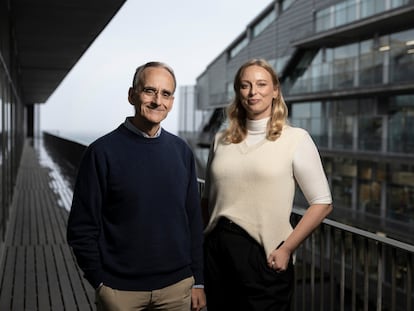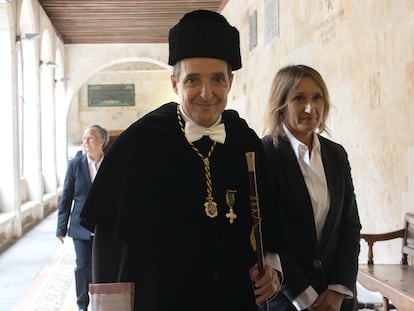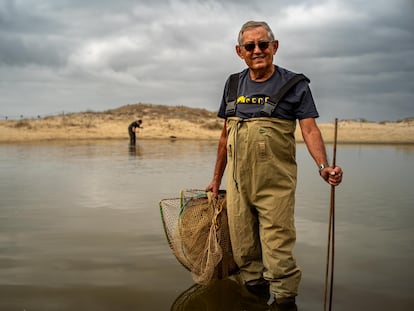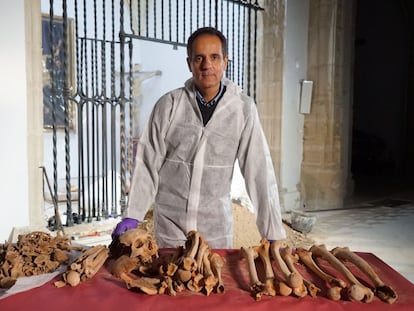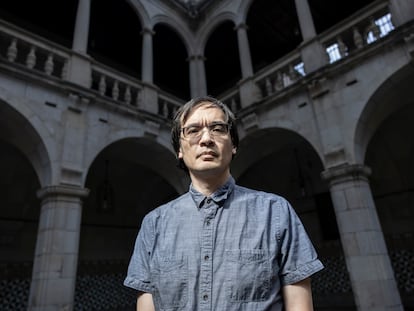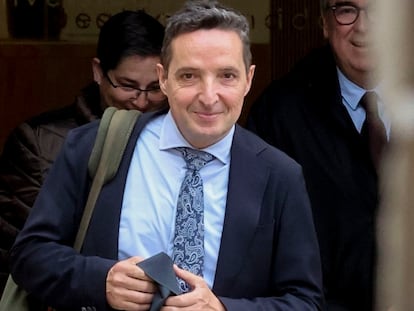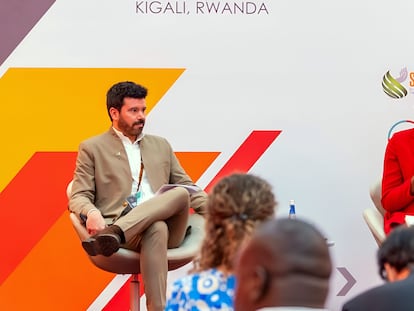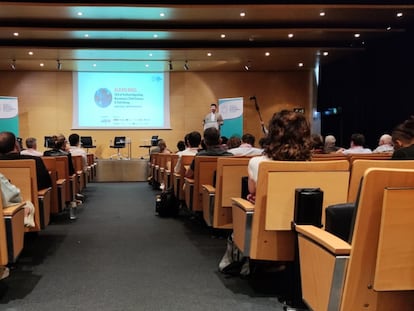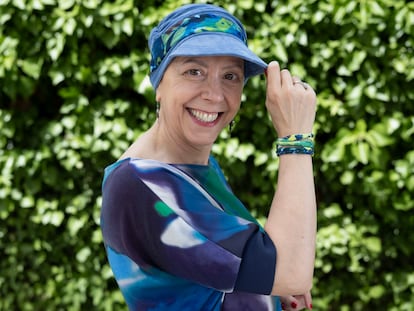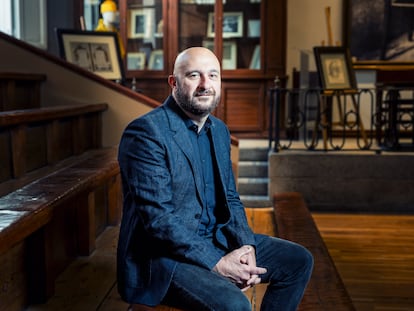The laboratory of the latest Nobel Prize winner in Chemistry David Baker, headed by researcher Susana Vázquez, talks about ‘democratizing’ the discovery of therapies
An ingenious large-scale experiment in Barcelona has led to the creation of a catalog detailing the effects of half a million DNA mutations
Researchers from a Spanish laboratory observe, for the first time, the formation of compartments alongside the basic ingredients of organisms
The Spanish scientist has begun her relentless training to become an extraterrestrial being. EL PAÍS accompanies her for a day in her new life
This newspaper unveiled that Saudi universities were paying up to €70,000 a year to prestigious researchers to artificially pump up Arab institutions in international academic rankings
A team of Spanish scientists has discovered the mechanism that could explain a high percentage of autism spectrum disorders
Spanish scientists working in Austria have observed in mice that some medicines can thwart the trick tumors use to evade immune defenses
Forensic scientist José Antonio Lorente, who claimed that the explorer was a Jew from Spain in a documentary, said he would publish his results in November
A large-scale study links the presence of these tiny molecules to increased aggressiveness in malignant tumors
The outline of this labyrinthine cellular machinery, the most complex in humans, opens up new ways of designing treatments against a multitude of diseases
The symbiosis between corals and algae, observed in fossil reefs 385 million years old, allowed for an explosion of life that feeds 500 million people
The publisher’s decision to withdraw the articles by Juan Manuel Corchado is the biggest scandal to hit Spanish scientists
The scientist has published, 15 years later than planned, the book he hoped would convince his father — a writer and hunter — that the extinction of species represents a form of suicide for humanity
Specialists criticize the absence of scientific evidence in the RTVE documentary featuring forensic expert José Antonio Lorente, who has not published any analysis since the exhumation in 2003 of the alleged tomb of the explorer
The Fields Medal winner is attempting to solve one of the Millennium Problems, with a reward of $1 million, but he also applies his analysis to topical enigmas such as the Venezuelan election and the advance of artificial intelligence
The analysis confirms that Juan Manuel Corchado organized ‘a factory of publications and citations’ with ‘openly fraudulent’ practices
A historic survey of the Atlantic Ocean floor sheds light on the chemical reactions between minerals and seawater that may have given rise to living beings
The mutational signature SBS93 — which may be linked to smoking and alcohol consumption — was found in one in three tumors
Alexis Roig, described by a former colleague as ‘a megalomaniac with a spectacular imagination,’ managed to sneak into a few outlets a bogus story about the inauguration in Kigali (Rwanda) of an institution that does not really exist
An association called SciTech DiploHub sent out a news release about a historic event that attracted 1,300 world leaders, including ministers, Nobel laureates and a Jordanian princess. The only problem is, it never took place
Diagnosed seven months ago, the biologist struggles with the fact that there are very effective experimental treatments that are not yet authorized
American researchers warn that ‘efficient and sustained mammal-to-mammal transmission is unprecedented’ and is occurring among asymptomatic cattle
The German scientist, in the running to win the Nobel Prize, believes that his experimental drug can rejuvenate the brain and reverse a multitude of diseases
The strategy — the injection of a simple antibody — has already begun to be tested in humans in an attempt to cure age-related illnesses
The ‘chromosome fossils’ from a female who died 52,000 years ago in Siberia have opened a window to a world still unknown to science
In the middle of the Cold War, a French expedition was able to access the Soviet Vostok base in Antarctica, where the temperature falls to -90ºC, to confirm the link between CO2 and global warming
The Palestinian scientist has managed to create living structures similar to two-week-old human embryos in his laboratory in Israel
